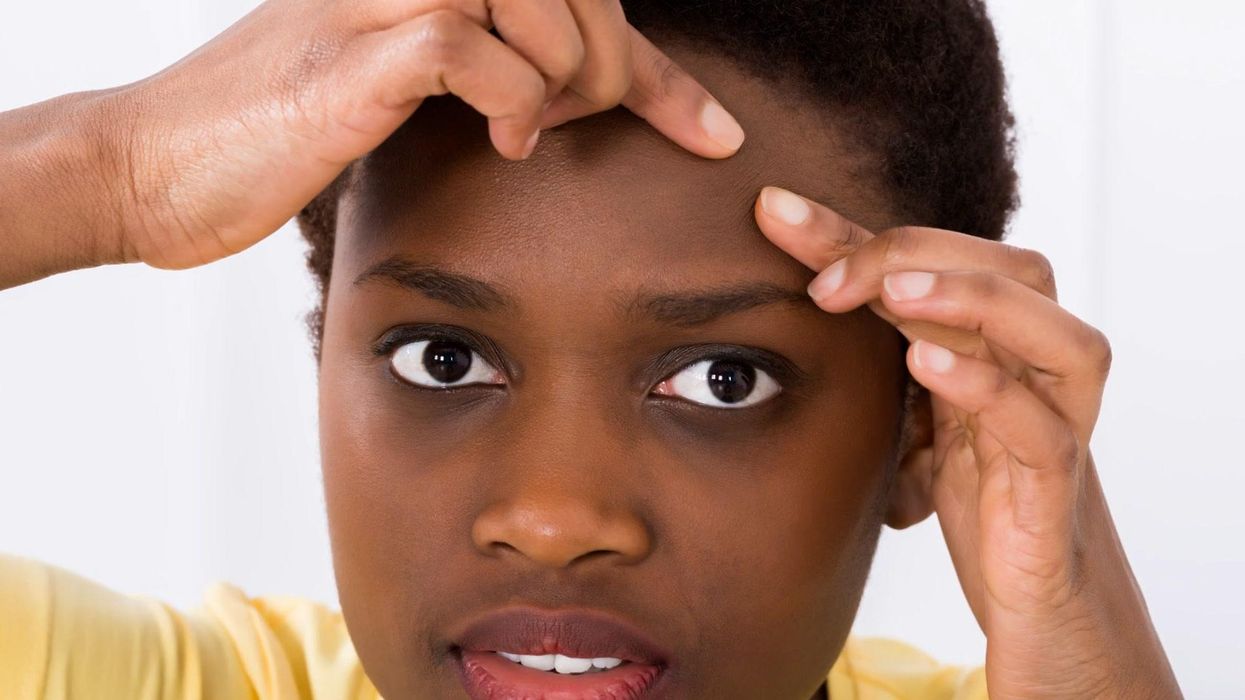Spots are one of the most annoying everyday occurrences we can all relate to.
They can be painful, they are often conspicuous, and they're always inevitably ill-timed - we've probably all got school photos to prove it.
The thing to take solace in is that no one who cares about you gives a damn about blemishes or blackheads, in fact, they probably love you more for them.
But if you're wondering what causes your breakouts, we've made a brief breakdown below:
Between your eyebrows or on your nose
According to Dr Joshua Zeichner, director of cosmetic and clinical research at Mt Sinai Hospital in New York City, this means that you're either going through puberty or you're experiencing a lot of stress.
Sign up to our new free Indy100 weekly newsletter
Your fight or flight stress response, an increase of adrenaline, can increase oil production and therefore you're more susceptible to breakouts, especially in these areas.
Your hairline
Probably too much hair product or you've rubbed it into your skin, clogging your pores.
Either that or you push your hair back frequently with dirty hands, pushing grease into your pores.
Around your mouth
Most likely your diet, residue from acidic foods and grease are the most likely culprits to block your pores.
If you've just had a burger, think twice about putting your fingers on your face and have a quick wash.
Your cheeks
More than likely it means you need to wash your hands, as these are most commonly in contact with these areas.
In addition, it might be time to clean that keyboard or phone.
Your ears
These are often linked with dehydration, for which the remedy is simple. Drink more water and fewer soft drinks.
Your upper arms
Often, this is an especially prevalent skin condition called keratosis pilaris, which takes the form of rough and bumpy red spots covering the skin like a rash.
It's a hereditary condition and is very common, occurring when too much keratin builds up in the skin's hair follicles.
NHS advice for this is to use non-soap cleansers, as ordinary soap could be drying your skin out, making the condition worse, using moisturisers and taking lukewarm showers as opposed to hot baths.
Anywhere else
We're not sure.
However, as with all things medical, seeing a doctor is far superior to looking for answers on the internet - if you feel you may have a skin condition then it's best to get it checked out.
Have your say in our news democracy. Click the upvote icon at the top of the page to help raise this article through the indy100 rankings.













